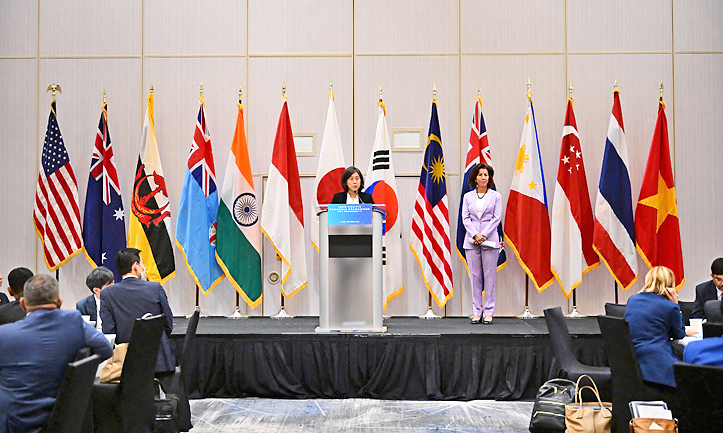LOS ANGELES (AFP) – The United States (US) and a group of Asian allies on Friday agreed on a set of negotiating targets, notably on trade and supply chains.
At the first ministerial for the Indo-Pacific Economic Prosperity Framework (IPEF), officials sketched the basis for common standards on key pillars, which also include green energy and the fight against corruption, in 14 countries accounting for 40 per cent of the global economy.
“I feel very confident saying that IPEF will create jobs in the US and will create jobs in other IPEF countries,” US Commerce Secretary Gina Raimondo said at the conclusion of the meeting. “We were able to finalise all four of the ministerial statements, which lay out the full scope of the framework and provide a roadmap for future discussions.”
The initial meeting offered little of the plans, which come several years after former president Donald Trump yanked the US out of a much more comprehensive and hard-won regional trade bloc.
The Trans-Pacific Partnership (TPP), which has since gone ahead without Washington, was hailed as a “high quality” pact. But with US public opinion more wary of free trade agreements, which are seen as a threat to American jobs, US President Joe Biden’s administration opted not to rejoin that pact.
The IPEF brings together the US, Australia, Brunei, Fiji, India, Indonesia, Japan, South Korea, Malaysia, New Zealand, the Philippines, Singapore, Thailand and Vietnam.
Raimondo praised the “consensus and commitment among all” members. Business leaders at the gathering said the frameworks were worthwhile in the absence of a robust pact like the TPP.
“We were very supportive of the TPP but we’ve just moved on and we’re being realistic right now,” one business leader told AFP.



